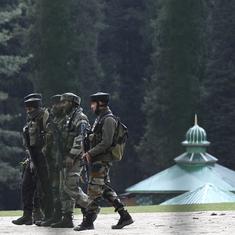It was England 2008, maybe 2009. The cold so cold it howled in the bones of your face. We were students, waiting in the wind for a train, a slow train to Birmingham. Bob Dylan was playing so we had paid 50 pounds each to stand on a chair and listen to ourselves scream for him.
In those days, you tried not to scream for Dylan too much. He had long morphed from scruffy radical singer to dusty patristic text, a favourite with fathers and uncles who liked to say all the good music had been made in their time. So respectable they pulled him out for school functions and a generation of English-medium children in Kolkata grew up yowling to the chords for Blowin’ in the Wind. That was World Peace Dylan.
When he stopped being dusty he started getting shiny. That winter, he was going to come out with a Christmas album and Winter Wonderland was on the playlist. Dylan, the singer of shopping malls and elevators. It was also rumoured that he was going to lend his voice to satellite navigation. I pictured turning the corner on a misty road and hearing a gravelly voice say, “Look out, kid, you’re gonna get hit.” It was enough to make someone drive into a tree.
Blob Dylan
Still, my friend Anisha and I had done our homework. For days, we had been listening to nothing else, trying to fill in the gaps in our knowledge. Anisha, who is blessed with the fierce thoroughness of a clothes wringer, was going through his discography. No point going to a concert if you could not shout along with the songs.
And then, a freezing train ride later, there were four of us in Birmingham, standing on tiptoe and smiling politely, knowing only that the blob at the other end of the hall was Dylan. Occasionally, the blob emitted sounds. Reviews from the concert tell me he sang Desolation Row, Ain’t Talkin’ and an “almost Mowtown-esq [sic] rendition of Blowin’ in the Wind”. It did not matter. David Bowie once kindly described Dylan’s voice as “sand and glue”. That evening it was very sandy and very gluey. We could not hear much anyway.
In the pleasant abstraction that is created by the half-dark of a concert hall and the warmth of a thousand bodies, I must have wondered what I was doing there. Why did I care enough to trudge all the way to hear a man croak?
Ancient, empty streets
Probably because, in between the school functions and the proselytising elders, there were tape recorders. And tapes that you could rewind till they were scratchy. It was Kolkata in the late 1990s and I was discovering that words could open up to let you inside them. The internet was still a novel concept so I had to keep rewinding Mr Tambourine Man in order to write down the words.
The more learned could say the song was all about smoking pot, I was willing to be literal. The opening chords became the sound of adolescence and yellow, lamplit Kolkata was suddenly liquid with possibility. Like the places Dylan sang of, this city too was full of ancient, empty streets, vanishing empires and haunted, frightened trees. Like him, I was ready to go wandering.
And sad-eyed ladies
Dylan, I found, was at his lyrical best when he was not talking about world peace or writing anthems about revolution. He could keep the generalised humanity of The Times They Are A Changin’ or Forever Young. I wanted to hear the poet of the smaller moments. The paranoid, bitter man of Idiot Wind. The lover sadly walking away in Don’t Think Twice, It’s Alright and Ballad in Plain D. The rather abject seducer of Lay Lady Lay. The quiet resignation of It Ain’t Me, Babe.
I would also come to love the way he could open up a private moment to reveal epic landscapes. Take, for instance, the flickering world of Visions of Johanna, where “infinity goes up on trial”. Or the medieval imagery of Shelter from the Storm, where the woman, who wears flowers in her hair, is rather like “La Belle Dame Sans Merci” of John Keats’s poem. Except La Belle Dame lured travellers to their ruin while Dylan’s woman offers a place “where it’s always safe and warm”. On a very different note, there was the sordid case of Hattie Carroll, which begins with details about her murder and ends by indicting all those who “philosophise disgrace”.
It later struck me that it might be a terrible fate to be a woman in a Dylan song. You either died or got abandoned because he, the troubadour and the seeker, had to be on his way. The ideal woman he describes in Love Minus Zero/No Limit is absolute like ice and fire. She is also passive, knowing better than the world around her but declining to join in the vulgar chatter. She possesses, in short, the mystique of a beautiful groupie.
But these were the songs I grew up humming and arguing with. They were the soundtrack for grief, romance and the end of parties. It was a strange assortment of his songs, a kind of private Dylan, not to be found in any album or compilation. Certainly not in the setlist on that cold day in Birmingham.










